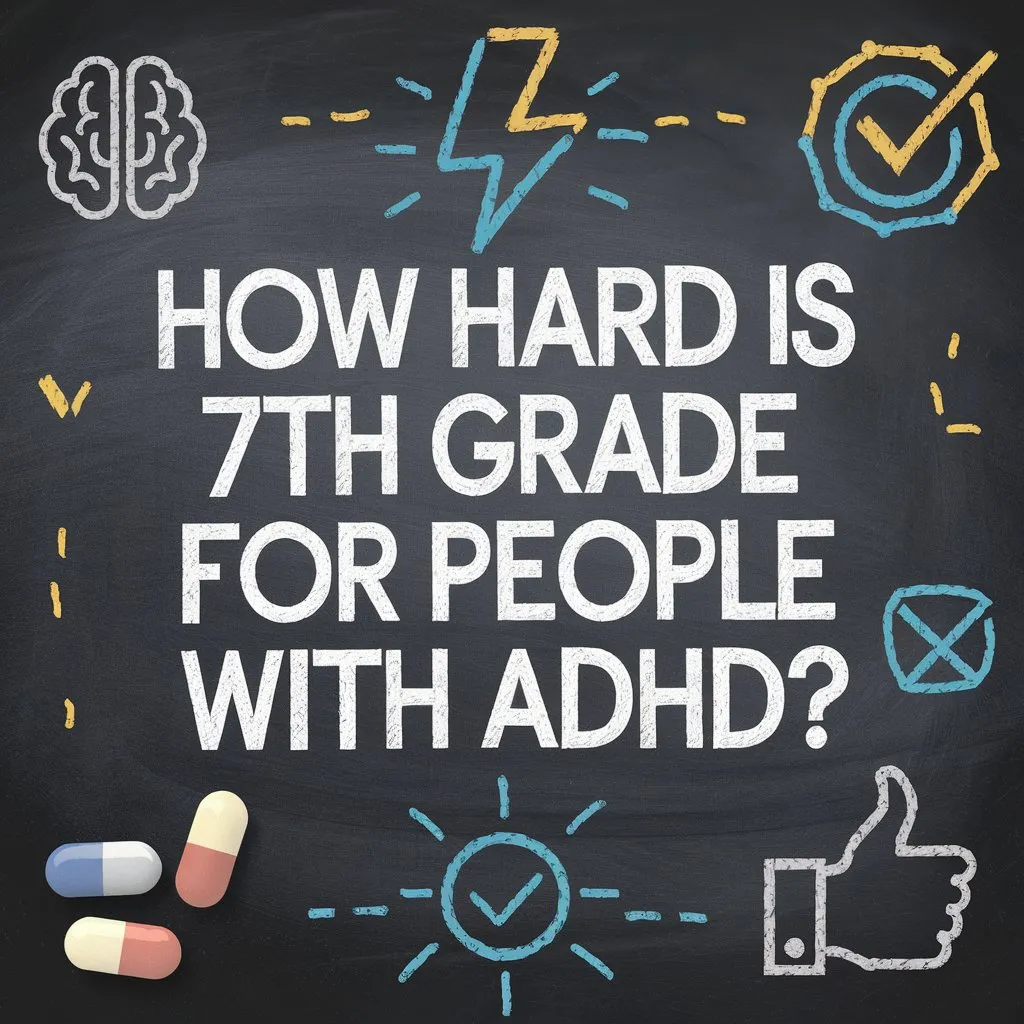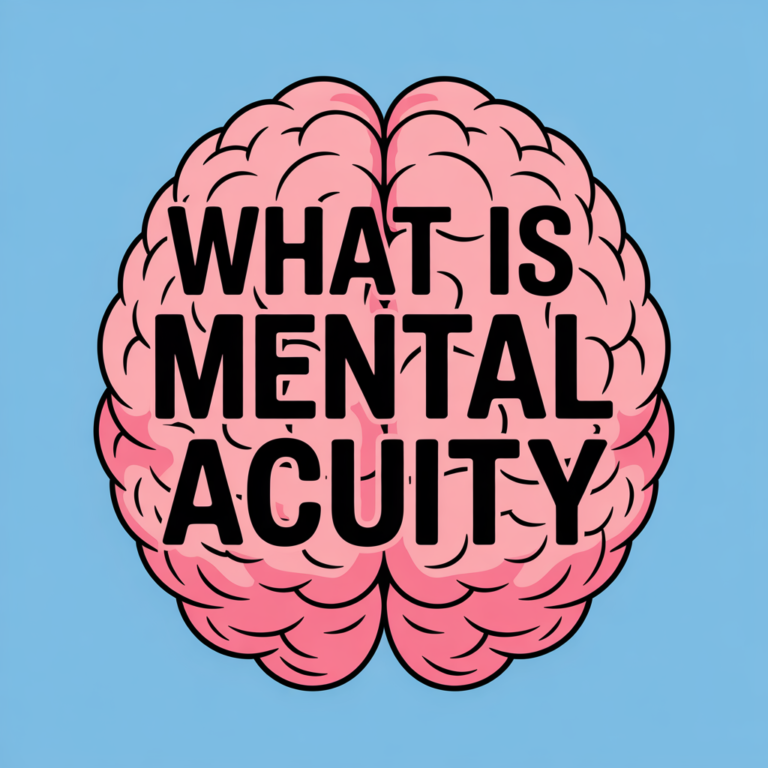Navigating the middle school years can be a formidable challenge for any student, but for those diagnosed with Attention Deficit Hyperactivity Disorder (ADHD), the complexities of 7th grade can present unique obstacles. The transitional nature of 7th grade—with increased academic expectations, social shifts, and developmental changes—makes it particularly difficult for students with ADHD to thrive without proper support. This article will delve into how hard 7th grade is for people with ADHD, examining academic, social, and emotional challenges, while also offering strategies and solutions that can make this period more manageable.
The Academic Challenges of 7th Grade for Students with ADHD
Increased Academic Pressure and Workload
One of the primary reasons 7th grade can be particularly challenging for people with ADHD is the significant step up in academic rigor. As students progress from elementary school into middle school, they are expected to become more independent in their learning. This transition often means heavier workloads, longer assignments, more complex projects, and a wider variety of subjects to juggle.
For students with ADHD, who may struggle with executive functioning skills, managing multiple tasks and meeting deadlines can be particularly daunting. Executive function challenges can manifest in various ways, such as:
- Difficulty with organization: ADHD can make it hard for students to keep track of homework assignments, due dates, and materials needed for different classes.
- Problems with time management: Students with ADHD often underestimate the time required to complete tasks, leading to rushed or incomplete work.
- Impaired working memory: The ability to hold and manipulate information in one’s mind is often compromised, making it difficult for students to follow multi-step instructions or retain information needed for quizzes and tests.
Struggles with Concentration and Focus
Another layer of difficulty comes from the inherent challenges ADHD poses to sustained attention. 7th-grade curriculum often involves lectures that are longer and more detailed, complex reading assignments, and projects that require sustained focus. Students with ADHD may find it nearly impossible to stay engaged during lengthy classroom sessions or to read through comprehensive chapters in textbooks without their minds wandering.
The hyperactivity component of ADHD can exacerbate this issue, as students may feel restless and have an overwhelming urge to move or fidget. This can make focusing on schoolwork a monumental task and can lead to impulsive behavior that disrupts their learning and that of others.
Transition to Abstract Thinking
Seventh grade marks a shift from concrete to more abstract thinking in many subjects, particularly in math and science. For students with ADHD, this cognitive leap can be challenging. Tasks that require multi-step problem-solving or abstract reasoning, such as algebraic equations or scientific analysis, may overwhelm them. The need for increased mental flexibility can lead to frustration and a sense of inadequacy if they do not receive appropriate support.
Social Challenges for 7th Graders with ADHD
Navigating Peer Relationships
Beyond academics, 7th grade presents social hurdles that can be particularly difficult for students with ADHD to navigate. Middle school is notorious for its social shifts as peer groups change and social hierarchies begin to solidify. For students with ADHD, who may already struggle with impulsivity, emotional regulation, and reading social cues, this period can be especially trying.
Some common social challenges faced by 7th graders with ADHD include:
- Difficulty interpreting nonverbal cues: Misunderstanding body language or tone of voice can lead to miscommunication or conflicts with peers.
- Impulsive behavior: Interrupting conversations, speaking out of turn, or saying things without thinking can alienate peers and create tension in friendships.
- Emotional reactivity: Students with ADHD often experience strong emotions that can flare up quickly. A minor conflict or a perceived slight can lead to an outburst or emotional shutdown, making it harder to maintain relationships.
Bullying and Stigma
Unfortunately, the differences in behavior that come with ADHD can make some students targets for bullying. Middle school can be a breeding ground for teasing and social exclusion, and students who exhibit behaviors perceived as “different” are often singled out. For a 7th grader with ADHD, this can mean being labeled as disruptive, weird, or annoying, which can have a long-lasting impact on their self-esteem and mental health.
Struggles with Self-Esteem
The combination of academic and social difficulties can create a vicious cycle that erodes self-confidence. A 7th grader with ADHD who repeatedly receives negative feedback from teachers, struggles to make friends, or feels constantly overwhelmed may begin to internalize these struggles as personal failings. This can lead to a negative self-image, decreased motivation, and even the development of anxiety or depression.
Emotional Challenges: A Hidden Struggle
The Emotional Toll of ADHD in 7th Grade
ADHD doesn’t just impact academic and social performance; it also takes a toll on students’ emotional well-being. Middle school is a time when emotions are already heightened due to the onset of puberty and significant neurological changes. For students with ADHD, these changes can amplify existing struggles with emotional regulation.
Common emotional challenges for 7th graders with ADHD include:
- Increased anxiety: The demands of keeping up with schoolwork and social expectations can create significant anxiety. Fear of failure or embarrassment can lead to avoidance behaviors, such as procrastination or skipping classes.
- Mood swings: The emotional regulation difficulties inherent in ADHD can result in sudden mood changes. Students may go from feeling excited and enthusiastic to frustrated or angry within a short time.
- Feelings of isolation: A sense of being different from peers, compounded by repeated setbacks and struggles, can lead to feelings of isolation and loneliness.
The Role of Parental and Teacher Support
The presence of a supportive adult, whether it be a parent, teacher, or school counselor, can make an enormous difference. However, without this guidance, students with ADHD may feel as though they are facing their challenges alone. Teachers who lack training in ADHD-specific strategies might unintentionally exacerbate these issues by enforcing rigid classroom structures that do not accommodate the needs of neurodivergent students.
Strategies to Support 7th Graders with ADHD
Academic Strategies for Success
While 7th grade can be hard for people with ADHD, there are strategies that parents, teachers, and students themselves can implement to foster academic success:
- Breaking Down Assignments: Dividing larger projects into smaller, more manageable tasks with individual deadlines can help students feel less overwhelmed and allow them to focus on one step at a time.
- Visual Aids and Graphic Organizers: These tools can assist students in organizing their thoughts, improving their ability to follow multi-step processes, and enhancing their retention of information.
- Flexible Seating and Movement Breaks: Allowing students to choose seating arrangements that suit their concentration needs and providing short movement breaks can help with attention and focus.
- Assistance with Time Management: Introducing tools such as planners, alarms, and digital task lists can help students keep track of assignments and deadlines.
Social and Emotional Support
The social and emotional components of ADHD should not be overlooked, especially in the challenging environment of 7th grade:
- Social Skills Training: Teaching students how to read social cues, engage in conversations, and manage conflicts can empower them to navigate peer relationships more successfully.
- Peer Mentoring Programs: Pairing students with ADHD with a supportive peer or older mentor can provide guidance, friendship, and a positive role model.
- Counseling Services: School counselors or outside therapists can help students learn strategies for managing emotions and coping with stress.
Parent Involvement and Advocacy
Parents play a crucial role in helping their children navigate how hard 7th grade is for people with ADHD:
- Establishing Routines: Consistent routines at home for homework, chores, and other responsibilities can create a predictable structure that helps students with ADHD manage their time more effectively.
- Collaboration with Teachers: Regular communication with teachers can ensure that strategies are implemented consistently and that adjustments are made as needed.
- Encouragement and Positive Reinforcement: Focusing on what students are doing right and offering praise for effort, not just achievement, can bolster self-confidence and motivation.
School-Based Accommodations
Schools can implement accommodations that make a significant difference for students with ADHD. Some options include:
- Extended Time on Tests and Assignments: This allows students to work at a pace that reduces anxiety and increases their ability to complete work thoroughly.
- Quiet Testing Environments: For students who are easily distracted, testing in a separate, quiet room can improve focus and performance.
- Alternative Learning Methods: Incorporating hands-on learning, interactive activities, and technology can help engage students with ADHD who may not thrive in traditional lecture-based settings.
The Impact of ADHD on Long-Term Outcomes in 7th Grade
Academic Performance and Future Success
Seventh grade acts as a critical bridge between the foundational learning of elementary school and the more specialized, intensive study of high school. For students with ADHD, success or struggle during this year can set the tone for future academic and personal experiences. Students who receive adequate support and learn effective coping strategies can develop resilience and skills that aid them throughout their educational journey. However, those who do not get this support may face ongoing academic difficulties that persist into high school and beyond.
Developing Resilience and Coping Mechanisms
While 7th grade can be particularly hard for people with ADHD, it also provides an opportunity for them to learn and practice coping mechanisms that will benefit them later in life. Developing resilience—the ability to bounce back from setbacks—can be cultivated through supportive environments and a growth mindset approach.
Students who learn to recognize their unique strengths, such as creativity, problem-solving abilities, and adaptability, can leverage these traits to offset their challenges. Encouraging self-awareness and self-adv
ocacy can empower students to ask for help when needed and to take ownership of their learning and personal growth.
Conclusion: How Hard is 7th Grade for People with ADHD?
In summary, 7th grade can be incredibly hard for people with ADHD, marked by academic, social, and emotional hurdles that require targeted support and understanding. The increased workload, the need for independent learning, and the challenges of peer relationships are just a few of the difficulties that students with ADHD face. However, with the right strategies—ranging from academic tools to social support systems and parent advocacy—students can navigate these challenges more successfully. The ultimate goal is not just to survive 7th grade but to thrive in it, developing resilience and life skills that will carry students forward with confidence and strength.
Whether you are a parent, teacher, or a student with ADHD, understanding these challenges and implementing practical solutions can make the journey more manageable and rewarding. So, while 7th grade may be hard for people with ADHD, it is not insurmountable. With patience, understanding, and the right support network, success is not only possible but achievable.
FAQs
Is Life Harder for People with ADHD?
Life can be more challenging for people with ADHD due to the difficulties they face with attention, impulse control, and hyperactivity. These challenges can affect various aspects of life, including academic, social, and professional settings. However, with appropriate strategies and support, individuals with ADHD can lead fulfilling and successful lives.
What Do People with ADHD Struggle with the Most?
People with ADHD often struggle the most with executive functioning tasks, which include organization, time management, and maintaining focus. Impulsivity and emotional regulation can also present significant challenges, impacting social interactions and decision-making processes.
What is the Hardest Age for ADHD?
The middle school years, particularly ages 11 to 14, are considered some of the hardest for individuals with ADHD. This period coincides with increased academic demands, social pressures, and developmental changes that can amplify the symptoms of ADHD and make daily life more difficult to manage.
Is It Hard to Get Good Grades with ADHD?
Getting good grades can be challenging for students with ADHD due to difficulties with attention, organization, and completing assignments on time. However, with the right accommodations, tools, and strategies, students with ADHD can achieve academic success and maintain good grades.
What Subjects Are Hardest for People with ADHD?
Subjects that require sustained attention and complex problem-solving, such as math and science, can be particularly difficult for students with ADHD. Reading-heavy subjects that demand strong focus and comprehension skills, like history or literature, can also pose challenges.
What Subjects Do ADHD Struggle with?
Students with ADHD may struggle with any subject that involves a high degree of focus, long-term planning, or step-by-step processes. Subjects with a lot of repetitive tasks or those that require abstract thinking, like higher-level math and language arts, can be difficult to manage.
Is Studying Harder with ADHD?
Yes, studying can be harder for individuals with ADHD due to their challenges with sustained attention, focus, and motivation. Strategies such as breaking tasks into smaller chunks, using visual aids, and incorporating movement breaks can make studying more manageable.
Is It Hard to Be Successful with ADHD?
Success can be more challenging to achieve for individuals with ADHD, especially in traditional academic and work environments that require strict focus and adherence to schedules. However, many people with ADHD find success by leveraging their creativity, unique problem-solving abilities, and adaptability. With proper support, accommodations, and strategies, individuals with ADHD can achieve significant success in their careers and personal lives.
What Subject Are People with ADHD Best At?
People with ADHD often excel in subjects that engage their interest and allow for creative thinking. Subjects like art, music, and technology, which offer hands-on and interactive learning experiences, can be areas where individuals with ADHD thrive due to their creativity and unique perspective.
Are People with ADHD Good or Bad at Math?
Mathematics can be a double-edged sword for people with ADHD. While some individuals struggle with math due to the sustained focus and multi-step processes required, others may find that their out-of-the-box thinking helps them excel in problem-solving and understanding complex concepts.
Who Is the Most Famous Person with ADHD?
Several famous individuals have ADHD and have spoken publicly about it, showcasing that success is possible with the condition. One of the most notable examples is Michael Phelps, the Olympic swimmer, who has shared his experiences with ADHD and how he overcame challenges to become the most decorated Olympian of all time.
Are ADHD Kids More Creative?
Yes, many kids with ADHD are often more creative than their peers. The unique way their brains process information and their ability to think divergently can lead to innovative ideas and creative problem-solving. This creativity can be an asset in artistic endeavors, writing, and projects that require original thinking.




